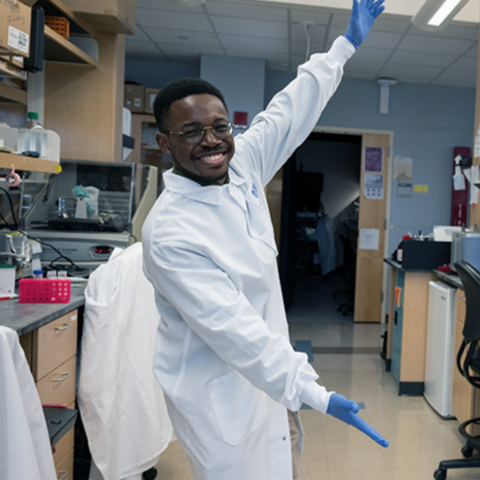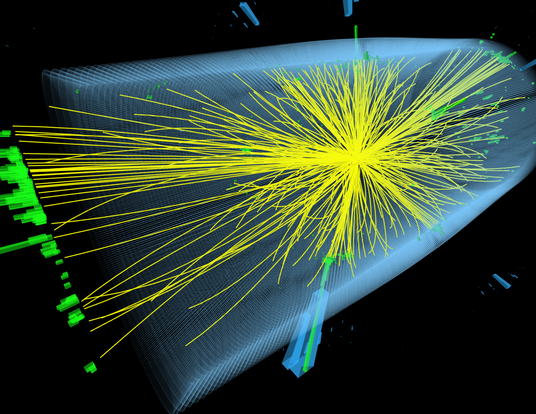Game On
Computer scientist uses videogame development expertise to streamline neuroscience research.
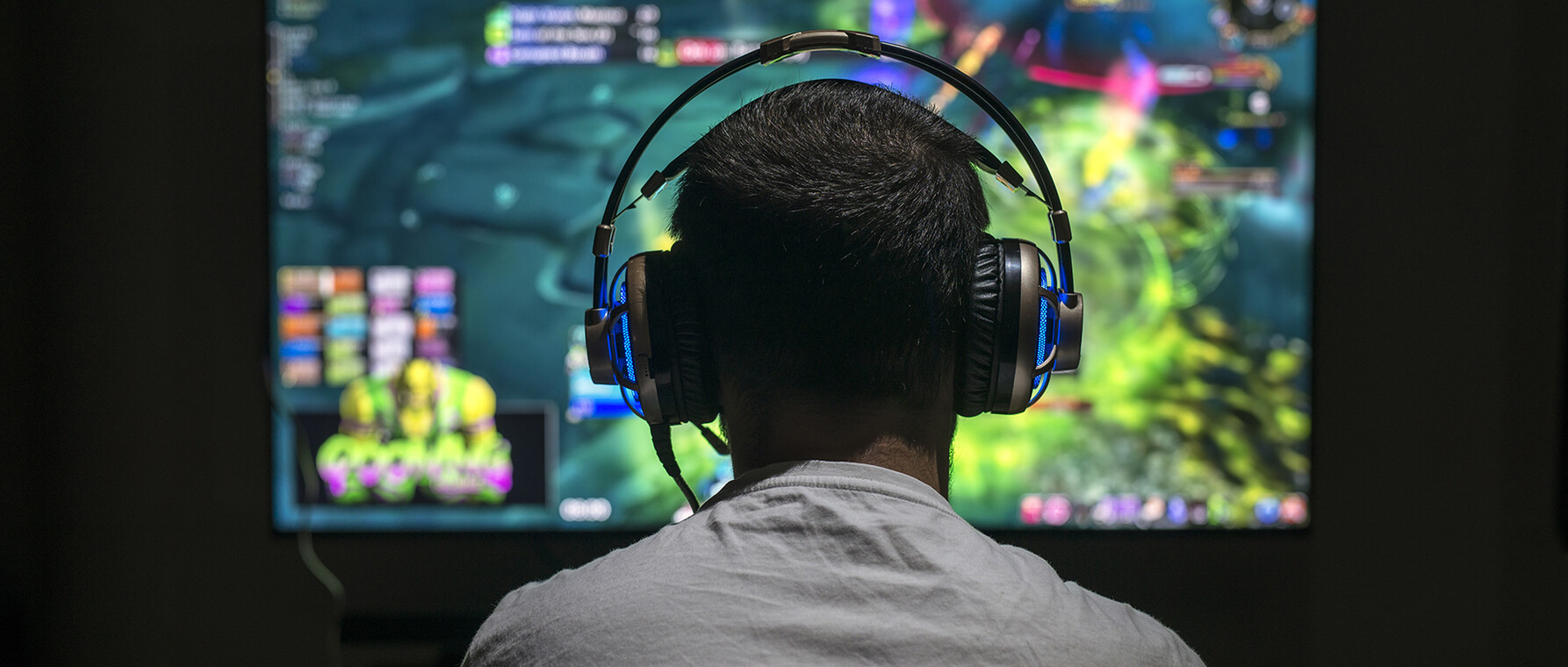
Research at Risk: Since World War II, universities have worked with the federal government to create an innovation ecosystem that has yielded life-changing progress. Now much of that work may be halted as funding is withdrawn. Find out more about the threats to medical, engineering, and scientific research, as well as how Harvard is fighting to preserve this work—and the University's core values.
As an undergraduate at the University of Northern Iowa (UNI), Felix Gonda was fascinated by the role math played in complex algorithms. But it was during his free time, not his class time, that he found inspiration for his future path. He and his friends played a lot of videogames, and as Gonda learned more about the complex computer science behind his favorites, he decided it was the field for him and became a developer.
“Gameplay by itself is very interesting because you get to work with animations and learn how to integrate them," he says. "And the whole physics of trying to see where characters are in relation to the main player in the game, that was very interesting. I got a lot of satisfaction out of seeing other people playing the game that I helped build.”
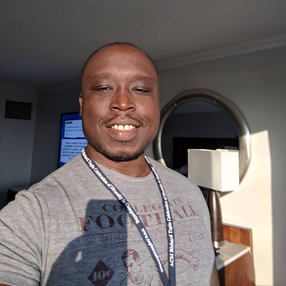
Today, Gonda is a computer science PhD candidate at SEAS and the Graduate School of Arts and Sciences, where he draws on his experience working on the popular “Madden NFL” game to develop user-friendly tools that can streamline complex neuroscience research. In the lab of Hanspeter Pfister, An Wang Professor of Computer Science at the Harvard John A. Paulson School of Engineering and Applied Sciences (SEAS), Gonda uses artificial intelligence to help biologists better understand how billions of neurons are interconnected inside the human brain.
Tackling complex processes in connectomics, a field that uses machine learning and computer vision to build digital segmentations that show how synapses and neurons connect in the brain, Gonda's research zeroes in on the problems of proofreading.
“In proofreading, an automated process extracts neurons and synapses, in this case, that can be used to build a graph," he says. "But the problem is that automation is never perfect. We don’t want to propagate automation errors to the biologist, so we have a human who sits between the final graph and the automation and they fix the mistakes. But if you have a segmentation that has 2 billion synapses and each one has to be inspected individually, it is practically impossible to do that.”
Gonda uses his videogame development expertise to gamify the proofreading process, creating tools that could enable hundreds or thousands of laypeople to collaboratively fix millions of mistakes.
“You have to build a tool such that people don’t get bored," he says. "It has to be interesting, something that people would want to spend time with. If I build it right, we could even recruit high school students and they could use the tool to accelerate the proofreading process.”
For his innovative work, Gonda was named one of six Future Leadership in Computing Alliance Fellows. The fellowship, offered by the Center for Minorities and People with Disabilities IT and by Google Research, provides a $25,000 award for his research.
Receiving the award is humbling for Gonda, who never imagined he’d be a researcher as a young man growing up in Sudan. He was introduced to computer science in high school, and was quickly intrigued by the concrete ways computing could change the world. After immigrating to the United States at age 16, he enrolled at UNI, where he studied computer science and digital electronics. After graduation, he joined DreamWorks Interactive, where he worked on gameplay for “Boom Blox,” a puzzle videogame for the Nintendo Wii. From there, Gonda moved to EA Sports, where he worked on the “Madden” and “FIFA” franchises.
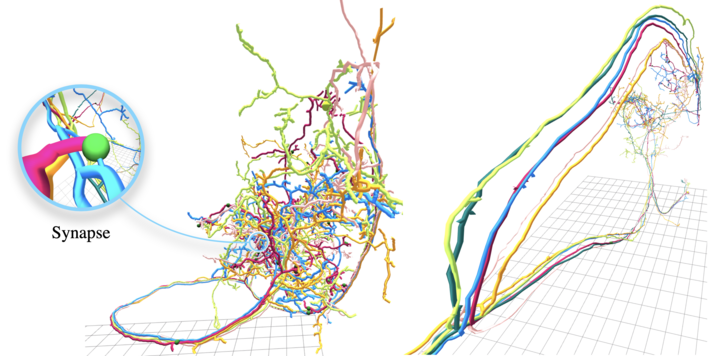
The work at EA Sports was very different since the games involved characters controlled by humans that had to interact with AI characters. Enabling those interactions to occur in a seamless way was a complicated challenge.
“The entire process of building a game can be a bit tedious,” he says. “For instance, if you make one fix, you have to test all the parts over and over again because your change could end up breaking somebody else’s change.”
Gonda sought a way to be more creative and initially planned to pursue an MBA, but as he explored research opportunities he found the complexities of connectomics too enthralling to pass up. He’s found a perfect fit for his ingenuity in the Visual Computing Group at SEAS, where he relies on creativity as he unpacks neuroscience datasets that are almost too massive to wrap one’s mind around.
To make the proofreading process easier, Gonda is developing algorithms that can identify likely error spots, so users would only focus on specific regions rather than an entire dataset. While he wrestles with data, he also must be mindful that the tools he’s building will be used by multiple users simultaneously, which requires unique development considerations.
It’s easy to get bogged down in the day-to-day challenges, but Gonda continues to be driven by the satisfaction that comes from seeing people using the tools he creates. He also enjoys using his skills to help others. Since arriving at Harvard, Gonda has mentored and tutored high schoolers at Cambridge Rindge and Latin School and at the ENROOT afterschool and summer program. Looking to the future, whether he starts a company or continues with research, he plans to keep letting his curiosity lead the way.
“I need to be in an environment where I can apply my creativity,” he said. “I really want to generate my own ideas and see them through from beginning to end.”
This story originally appeared on the website of the Harvard John A. Paulson School of Engineering and Applied Sciences.
Get the Latest Updates
Join Our Newsletter
Subscribe to Colloquy Podcast
Simplecast


